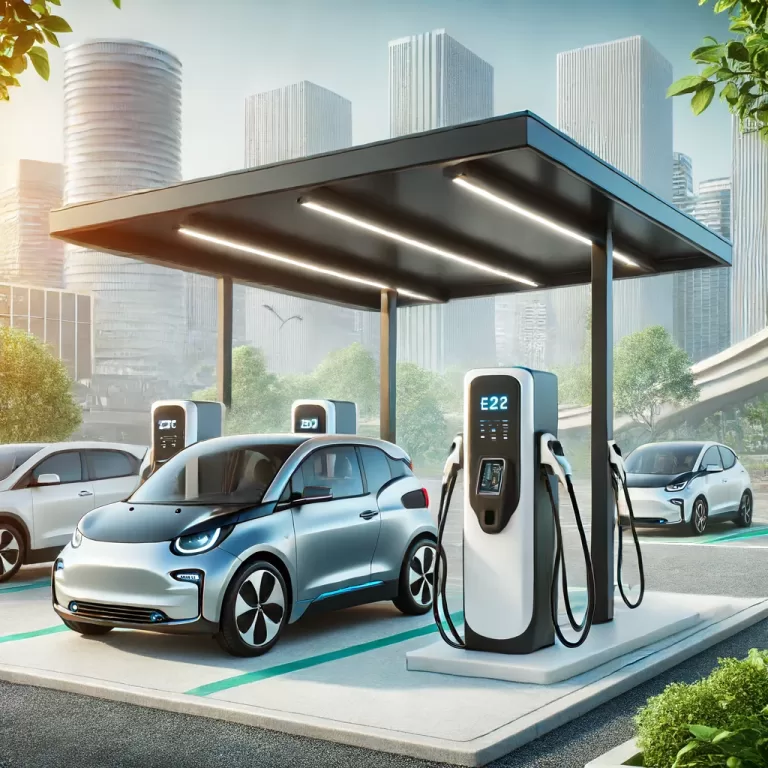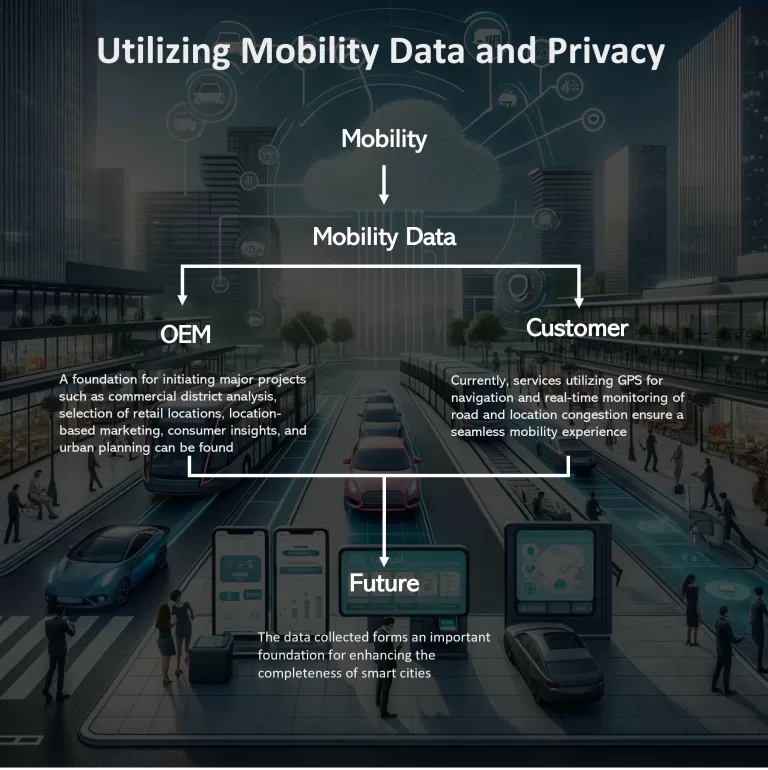
In the previous article, we explored the fundamental concept of collecting mobility data and the advantages it provides to OEMs and customers, as well as its implications for future industries.
According to recent research in the mobility sector, autonomous driving, the Internet of Things (IoT), electrification, Mobility-as-a-Service (MaaS), micro-mobility, artificial intelligence (AI), smart infrastructure, big data, augmented and virtual reality, and 3D printing are identified as the major trends in the mobility industry by 2024. These technologies can play a crucial role in protecting mobility privacy, with AI and IoT specifically contributing to enhancing security and maintenance functions through data exchange between vehicles and communication with central hubs.
Today, this article will cover how privacy is being protected in the collection of mobility data, the current regulatory environment for data collection, user perception and trust building, and my final thoughts.
Part 2
- Privacy Protection Technologies
- Legal and Regulatory Environment for Data Collection
- User Perception and Trust Building
- Implications
1. Mobility Data Privacy Protection Technologies
Privacy protection technology in the automotive and transportation industry is a critical issue related to the protection of personal data. These technologies provide various methods essential for protecting personal information and securely processing data. According to Gartner, by 2024, 75% of the global population will have its personal data covered under modern privacy regulations, which will be a primary driver of privacy operationalization.
There are several innovative methods in mobility privacy protection technologies, and various companies operate in this field. Key technologies include connected cars, big data, shared mobility, augmented reality (AR), lightweight materials, in-car services, MaaS, and autonomous vehicles. These technologies are driving digital transformation in the mobility industry. (https://www.startus-insights.com/innovators-guide/mobility-innovation-map-reveals-emerging-technologies-startups/)
2. Legal and Regulatory Environment for Mobility Data Collection
The protection of privacy related to the data collected by OEMs in the mobility sector is becoming increasingly important. The emergence of connected cars has raised public awareness of personal data, leading to global regulations aimed at protecting consumer data privacy in the automotive industry. McKinsey highlights the increasing awareness of consumer data protection and privacy, with regulations like GDPR strengthening consumer protection.
Regulations such as the European Union’s General Data Protection Regulation (GDPR), Canada’s Digital Privacy Law (PIPEDA), and the U.S. SPY Car Act require OEMs to apply effective security measures for the data they collect and process. These laws and regulations provide guidelines on how OEMs should collect, store, share, and delete data. (https://upstream.auto/solutions/regulatory-compliance/)
Automotive manufacturers need to establish data governance frameworks to effectively manage and protect collected data. These frameworks should consider various regulations related to vehicle safety and security, event data recorders, V2X systems, data usage and sharing, competitive issues, commercial and contractual matters, and data privacy. (https://www.hoganlovells.com/en/publications/the-automotive-industry-rethinks-its-privacy-strategies)
Startups related to data privacy include CryptoNumerics, BlackFog, Intellegant, Bitnobi, and apheris AI, developing technologies like protected vertical DaaS solutions, in-device data privacy and security solutions, services aiding data privacy and regulatory compliance in life sciences and pharmaceutical R&D, privacy-protected data sharing platforms, and technologies enabling distributed and decomposed data sharing, thereby strengthening cybersecurity and data privacy. (https://www.startus-insights.com/innovators-guide/5-top-emerging-data-privacy-startups/)
3. Mobility Data User Perception and Trust Building
– The importance of reliability and data protection: According to McKinsey, many consumers tend to use online purchases or digital services only from companies known to protect their data. If they become aware of a data protection breach, 40% of consumers reported stopping transactions with that company, emphasizing why OEMs must prioritize data protection and reliability.
– The difference in consumer perception: Research by Deloitte Insights suggests many executives in consumer product companies overestimate how comfortable consumers feel about sharing personal data and the value they receive from it. In reality, consumers feel the personalized services they receive do not offset the risks associated with data sharing to the extent executives believe.
Strategies for building trust
– Goal setting: Digital trust leaders set more goals for trust building, focusing on gaining a competitive edge through enhanced customer relationships and new customer acquisition.
– Data privacy and security practices: Gaining consumer trust involves using data privacy policies as marketing tools and increasing transparency to allow consumers to control how their data is used. OEM companies can build trust with customers by enhancing transparency, expanding user control, strengthening data security, ethical data usage, educating users, and continuous communication. These research outcomes and strategies provide OEM companies with essential guidelines for collecting mobility data related to building and maintaining user trust. Companies that successfully build digital trust experience fewer losses in the event of a trust breach and can foster business growth. Therefore, OEMs should focus on developing reliable data management and protection policies and effectively communicate these to consumers to build and maintain consumer trust.
4. Implications
According to the latest research in the mobility industry, autonomous driving, IoT, electrification, MaaS, micro-mobility, AI, smart infrastructure, big data, AR/VR, and 3D printing are set to be the major trends by 2024, with mobility data privacy expected to contribute to enhancing data exchange, security, and maintenance functions.
The future of data privacy will play a key role in various areas, such as the safe operation of autonomous vehicles, providing personalized driving experiences, increasing the efficiency of traffic management systems, and integrating with smart city infrastructure. These technological advancements will enable new services and functionalities while protecting user privacy.
Thinking about the future of data privacy should not be taken lightly. Even attempting to access a website often requires personal information, and it’s highly likely that someone else already possesses my data. Thus, it’s necessary to be vigilant about securing my data.
OEMs can create new business models through collaboration with startups, leveraging big data analysis, AI-based personalized services, and vehicle services integrated with smart infrastructure. By protecting data, companies gain customer trust, which directly links to brand loyalty.



